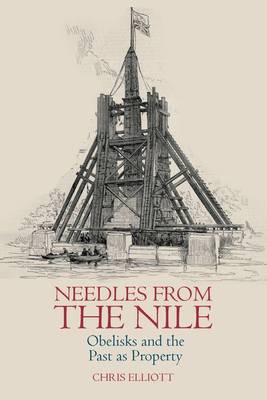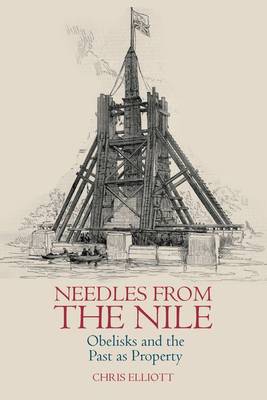
Bedankt voor het vertrouwen het afgelopen jaar! Om jou te bedanken bieden we GRATIS verzending (in België) aan op alles gedurende de hele maand januari.
- Afhalen na 1 uur in een winkel met voorraad
- In januari gratis thuislevering in België
- Ruim aanbod met 7 miljoen producten
Bedankt voor het vertrouwen het afgelopen jaar! Om jou te bedanken bieden we GRATIS verzending (in België) aan op alles gedurende de hele maand januari.
- Afhalen na 1 uur in een winkel met voorraad
- In januari gratis thuislevering in België
- Ruim aanbod met 7 miljoen producten
Zoeken
€ 132,95
+ 265 punten
Omschrijving
In the hearts of London and New York stand their two oldest public monuments, Cleopatra's Needles, the last of a series of obelisks from Ancient Egypt to be moved abroad during a period of over two thousand years. This book uses the Needles to examine how objects embody the cultures that create them, and how the use, value, and meaning of these objects change as they are transferred between cultures by gift, sale, barter, or theft. It explores the way in which obelisks functioned as imperial trophies, how their transfer was part of the complex political manoeuvring between European powers, America, the Ottoman Empire, and the semi-autonomous rulers of Egypt, and how their acquisition reflected the relative power of these parties. In contrast, it also examines the crucial role that private individuals and finance played in the acquisition and transport of the obelisks, and how popular understanding of them, and of the culture they came from, often differed from those of social and professional elites. It also relates the Needles to contemporary debates about the ownership of cultural artefacts, the legacy of colonial history, and the nature of reception as the process of understanding and valuing the past and its surviving material and immaterial culture.
Specificaties
Betrokkenen
- Auteur(s):
- Uitgeverij:
Inhoud
- Aantal bladzijden:
- 328
- Taal:
- Engels
Eigenschappen
- Productcode (EAN):
- 9781800856301
- Verschijningsdatum:
- 1/05/2022
- Uitvoering:
- Hardcover
- Formaat:
- Genaaid
- Afmetingen:
- 156 mm x 234 mm
- Gewicht:
- 639 g

Alleen bij Standaard Boekhandel
+ 265 punten op je klantenkaart van Standaard Boekhandel
Beoordelingen
We publiceren alleen reviews die voldoen aan de voorwaarden voor reviews. Bekijk onze voorwaarden voor reviews.









